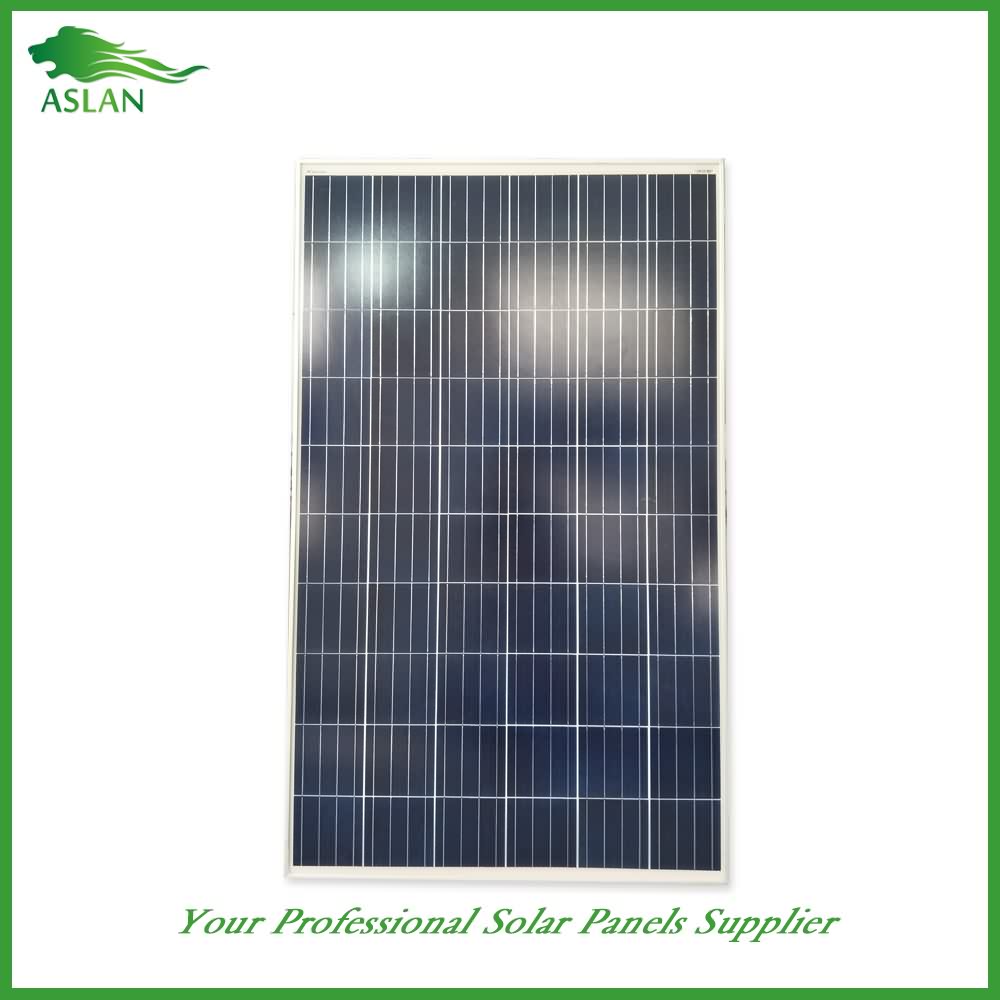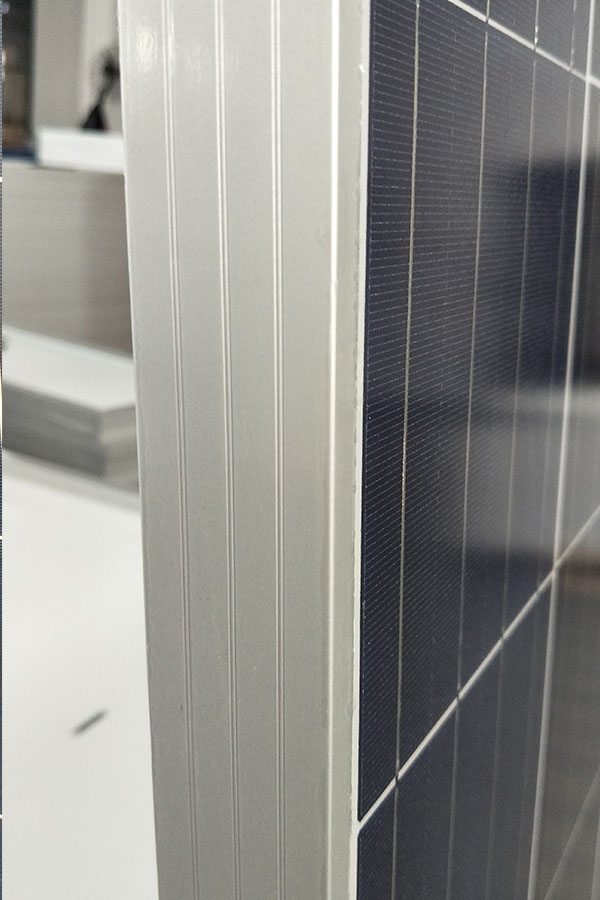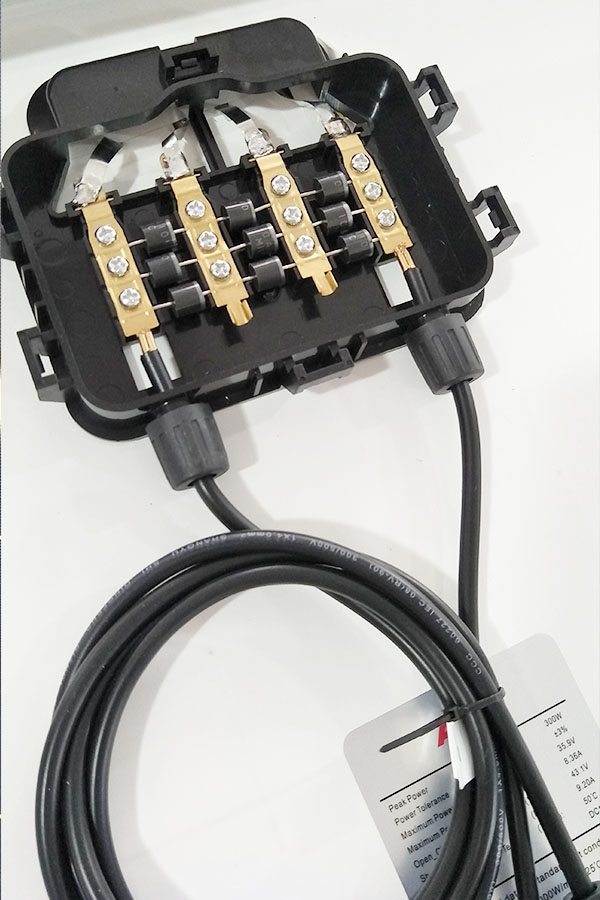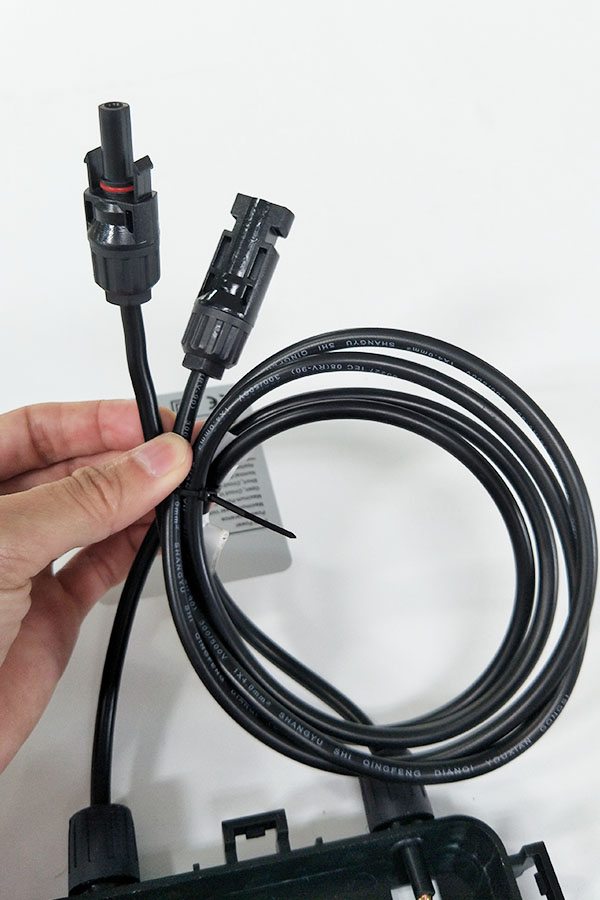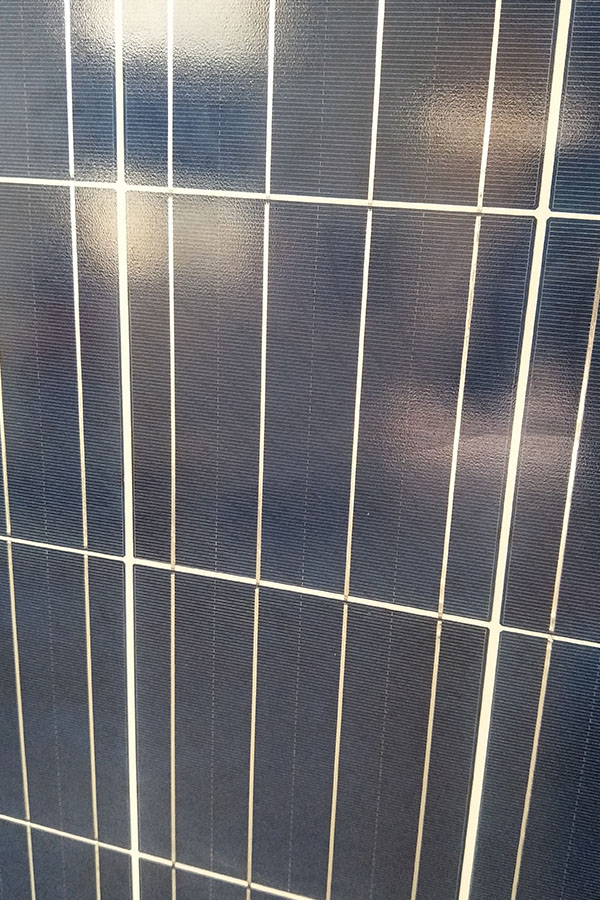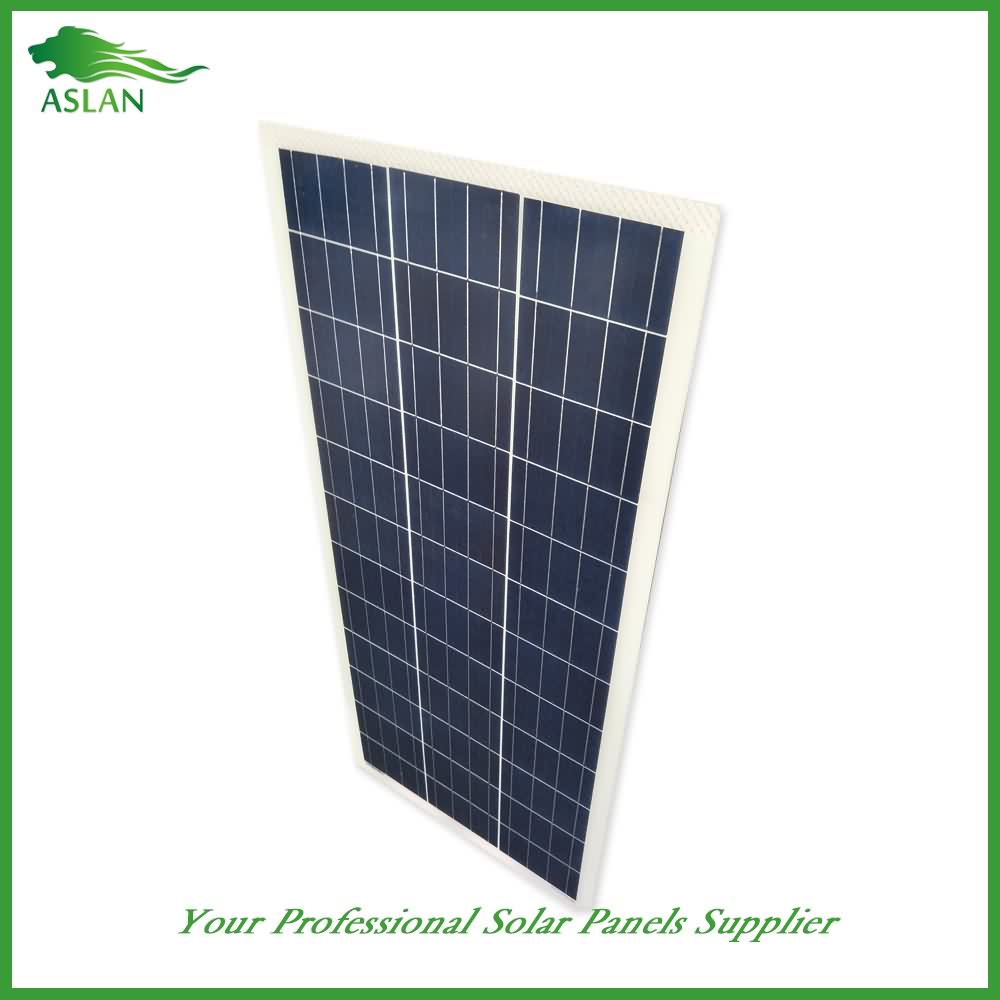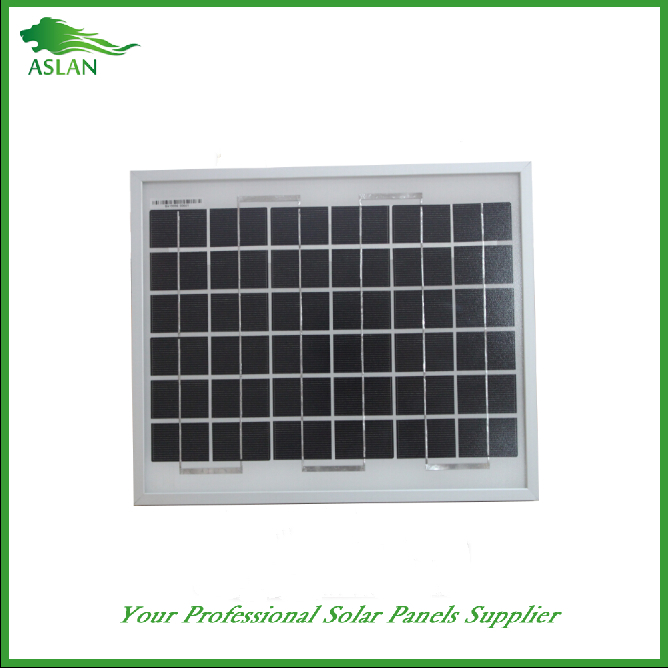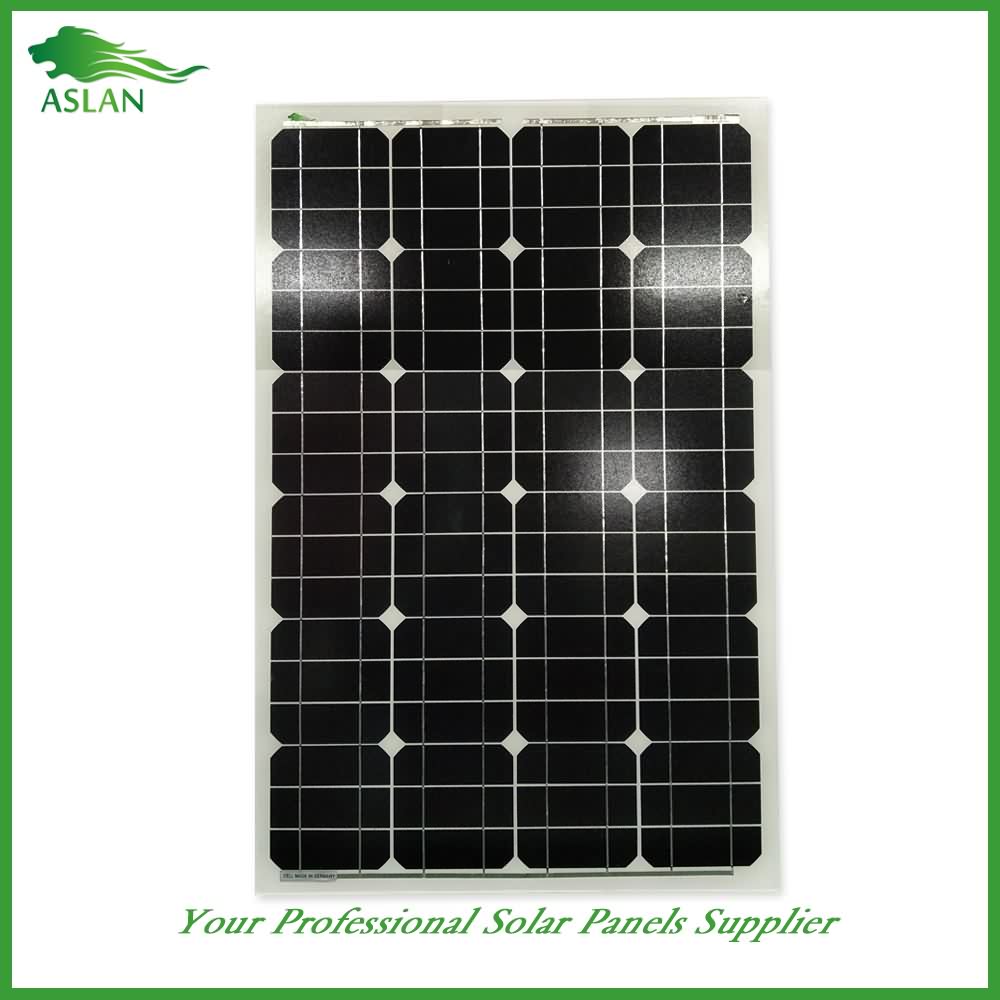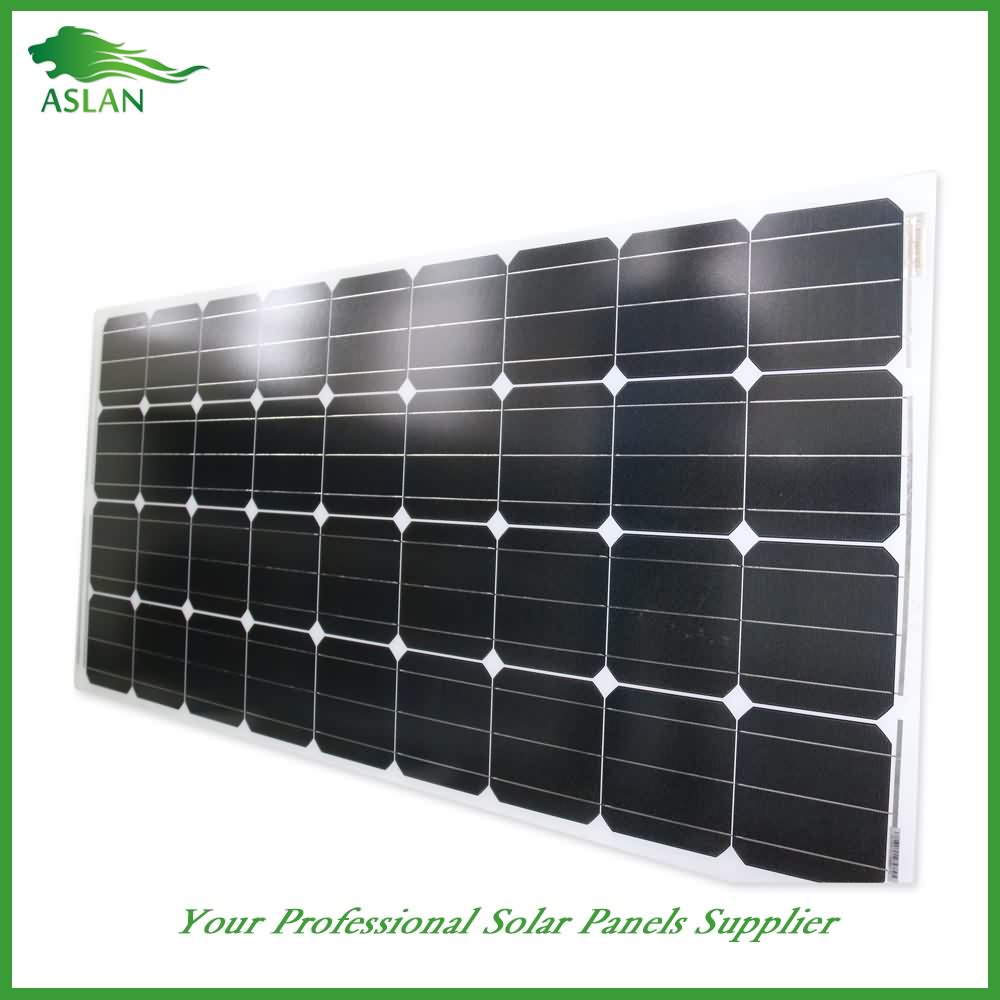50% OFF Price For Poly-crystalline Solar Panel 250W Factory in Johannesburg
Short Description:
The key to our success is "Good Product Quality, Reasonable Price and Efficient Service" for 50% OFF Price For Poly-crystalline Solar Panel 250W Factory in Johannesburg, We sincerely welcome friends from all over the world to cooperate with us on the basis of long-term mutual benefits.
Poly-crystalline Solar Panel 250W
Technical parameter
Maximum Power(W) 250W
Optimum Power Voltage(Vmp) 30.25V
Optimum Operating Current(Imp) 8.26A
Open Circuit Voltage(Voc) 36.61V
Short Circuit Current(Isc) 8.89A
Mechanical Characteristics
Cell Type Polycrystalline 156x156mm (6 inch)
No of Cell 60 (6x10pcs)
Dimensions 1640x990x40mm
Weight 18.5KGS
Front Glass 3.2mm,High Transmission, Low Iron,Tempered Glass
Junction box IP65 Rated
Output Cable TUV 1×4.0mm2/UL12AWG,Length:900mm
Temperature and Coefficients
Operating Temperature(°C): -40°C ~ + 85°C
Maximum System Voltage: 600V(UL)/1000V(IEC) DC
Maximum Rated Current Series: 15A
Temperature Coefficients of Pmax: -0.47%
Temperature Coefficients of Voc: -0.389%
Temperature Coefficients of Isc: 0.057%
Nominal Operationg Cell Temperature (NOCT): 47+/-2°C
Materials of solar panel
1).Solar Cell——Polycrystalline solar cell 156*156mm
2).Front Glass——-3.2mm, high transmission, low iron, tempered glass
3).EVA——-excellent anti-aging EVA
4).TPT——-TPT hot seal made of flame resistance
5).Frame——anodized aluminum profile
6).Junction Box——-IP65 rated, high quality, with diode protection
Superiority: high quality anodized aluminum frame, high efficiency long life, easy installation, strong wind resistance, strong hail resistance.
Features
1. High cell efficiency with quality silicon materials for long term output stability
2. Strictly quality control ensure the stability and reliability, totally 23 QC procedures
3. High transmittance low iron tempered glass with enhanced stiffness and impact resistance
4. Both Poly-crystalline and Mono-crystalline
5. Excellent performance in harsh weather
6. Outstanding electrical performance under high temperature and low irradiance
Quality assurance testing
Thermal cycling test
Thermal shock test
Thermal/Freezing and high humidity cycling test
Electrical isolation test
Hail impact test
Mechanical, wind and twist loading test
Salt mist test
Light and water-exposure test
Moist carbon dioxide/sulphur dioxide
On beautiful Seabrook Island, nestled on the coast just south of Charleston, South Carolina, lies Camp St. Christopher It offers over 300 acres of beach, marsh and maritime forest and multiple facilities including meeting and conference centers, lodging, and worship centers. We’re excited about keeping you up-to-date on our progress and informing you about how this project was made possible.
The process began last August when the State Energy Office put out information that there were going to be $2.9 million available in grants for alternative energy projects for non-profits. As soon as we found out, we immediately started getting in touch with local Charleston non-profit organizations to inform them about the opportunity.
When St. Christopher responded about being interested, we setup a meeting for late September 2009 and went out to view the grounds and start planning.
The RFP from the State was issued in early September. The government was looking at multiple factors before approving a non-profit like St. Christopher for the grant. These included visibility of project, potential job creation, overall benefit in terms of investment and payback of the project (they needed a minimum return of $2.50 dollars to $1 spent).
The grant writing process was long and hard, but St. Christopher didn’t have to worry about that. SES took care of making sure the grant was completed correctly and on time. Anything we were able to do to make the process easier for them, we did!
After submitting the grant, we found out in March that St. Christopher was awarded the money! After that, it was really time for us to get moving. It took till June to actually get the contracts squared away with the state. We then went through the permitting process. We put together architectural drawings done by the camp director, roof mounting drawings, basically everything that needed to be done to the camp to get it ready for installation.
The buildings needed some retrofits to make the project possible. For example, the roofing mounts had to be able to withstand 130mph winds with 150 mph gusts…..just one of many details to iron out. We were permitted by the 2nd week of July and started work the next week.
Needless to say, the past year has been full of paperwork and phone calls, red tape and patience.
One of our main goals when working with a non-profit to obtain funding or a grant is to shoulder as much of the work as possible. So far, it’s been a very successful project with St. Christopher.
Stay tuned in weeks to come for pictures and videos on the construction, retrofits, and installation.
We want you to follow along with this project with us. Also, if you’re involved in a non-profit, there are still government moneys available for your organization. Even if you aren’t sure if you qualify, get in touch with us and we’ll help you get moving forward on an alternative energy project.
clean natural state federal tax credits install “Justin Nathanson” “Paul Fleury” Greg Adam independence solutions free save “how to” bills “South Carolina Solar Council” “American Solar Energy Society” “Solar Energy Industries Association” “South Carolina Solar Business Aliiance” information SCE&G SCANA Cooperative utility Duke Santee Cooper
Read the full blog post here: http://www.thediyworld.com/blog/?p=1610
I had a blocking diode fail on me a few days back. It was the diode between the wind turbine and my battery bank. This diode actually became a zero resistance two way conductor and drained my battery bank through the DC wind turbine.
A diode is like a one way valve. It allows electricity to flow in one direction but blocks it from flowing in the other direction.
When a diode fails it can sometime short right out and conduct electricity in both directions. This is what happened to mine.
There is a silver band on a diode. This is the negative side. The other end is the positive side. So if you want power to flow from your wind turbine like mine, for example, then you would have the positive wire form the wind turbine connected to the positive side of the diode. Then the negative side of the diode on the battery bank plus terminal.
You can test a diode with a multimeter set on Ohms scale. Using the meter on a medium Ohms setting simple connect the test leads to the diode. Either way, it is not important for this test.
In one direction you will measure some resistance. In the other direction the flow of electricity will be blocked and you will measure infinite resistance.
When a diode blows out like mine did, you will have energy being conducted in both directions. My blown diode actually shows zero resistance in both directions. This is quite surprising. It is no wonder my battery bank was drained through the wind turbine.
Follow my daily progress on the path to self sufficiency on my off grid solar homestead.
https://www.youtube.com/user/techman2015/playlists?view=50&shelf_id=10&sort=dd
Please donate to help keep The Off Grid Project ™ going: https://www.paypal.com/cgi-bin/webscr?cmd=_s-xclick&hosted_button_id=3TQSWXLLRZ6HW
Join The Off Grid Project ™ and The Do It Yourself World ™ forum and share your ideas, tips and projects.
http://www.thediyworld.com/forum
The Off Grid Project ™ is presented by The Do It Yourself World ™.
http://www.TheDIYworld.com
